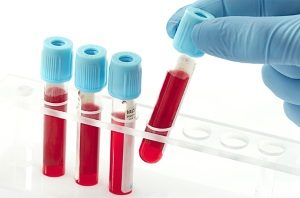Legally Reviewed By:
Brian P. Gabriel, Esquire
 A DUI arrest is usually made at a traffic stop after a police officer has had reasonable suspicion to pull a driver over. A simple traffic violation, swerving within lanes, or frequently hitting the brakes is all an officer needs to have reasonable suspicion. Once the officer stops the motorist, he must have probable cause to make an arrest. The easiest way a policeman can test a driver’s blood alcohol concentration is through the breath test. The officer can also administer a series of field sobriety tests. If these tests hint that a driver is under the influence, this is probable cause for an arrest.
A DUI arrest is usually made at a traffic stop after a police officer has had reasonable suspicion to pull a driver over. A simple traffic violation, swerving within lanes, or frequently hitting the brakes is all an officer needs to have reasonable suspicion. Once the officer stops the motorist, he must have probable cause to make an arrest. The easiest way a policeman can test a driver’s blood alcohol concentration is through the breath test. The officer can also administer a series of field sobriety tests. If these tests hint that a driver is under the influence, this is probable cause for an arrest.
At times, a blood test can be administered as a more accurate reading of a person’s BAC level. A blood test may be requested by the driver, who may also request that it be done in a hospital rather than a police station or mobile unit. Regardless of the type of test they may have you take if you have been arrested for DUI, there is always the possibility of flawed test results due to flawed methods and/ or samples.
Faulty Blood Samples
While the blood test is touted as the most “accurate” it is also subject to a number of flaws, particularly when the sample is left in storage for too long. The logic behind blood testing is that the blood taken remains the same as the blood that is in the driver’s vein at the time of the draw; however this is highly flawed as blood is sensitive to time.
Blood Draw & Storage
How the blood itself is collected can affect the integrity of a blood sample. Studies have revealed blood draw errors are accountable for up to 50% of false positives. The blood sample is also not safe in storage.
The manner in which blood is stored and maintained prior to analysis can influence false positive results. It is not uncommon for DUI blood samples to remain in storage for days due to delays in getting the blood to the testing facilities that are often overflowing with samples. Blood, being an organic material, starts to decompose after a while. It starts to ferment. The conditions necessary for fermentation are already present in a blood sample vial. Yeast, bacteria, and sugar can all be found in a blood sample. When given enough time, fermentation –the process by which alcohol is formed — can occur.
A person’s blood sample may not even reflect an elevated BAC until fermentation occurs, leading to a false high positive reading. Any blood sample, regardless of whether or not the person was drinking, can ferment due to this natural process. In samples with no previous alcohol content, fermentation can cause a BAC of .25% depending on the sample’s stage of decay. Refrigeration slows down this process, but it does not stop it.
Building a Defense
The only way to prevent blood fermentation is to utilize a preservative called sodium fluoride solution. This solution is present in most blood-alcohol kits. Police often fail to use the solution or use enough of it to properly preserve a blood sample. The method of analysis can also affect the BAC even when a preservative is used.
It is crucial to approach a highly experienced DUI attorney immediately upon an arrest. A skilled attorney like Mr. Brian Gabriel can examine all the details surrounding your case, including the methods used by police to test your BAC level. Brian Gabriel’s strong legal reputation is most well-known throughout Palm Beach County for his efforts in uncovering faulty breath testing equipment. A results-driven attorney like Mr. Gabriel is the one you need on your side at this time. Call 561-622-5575 for a free consultation.



